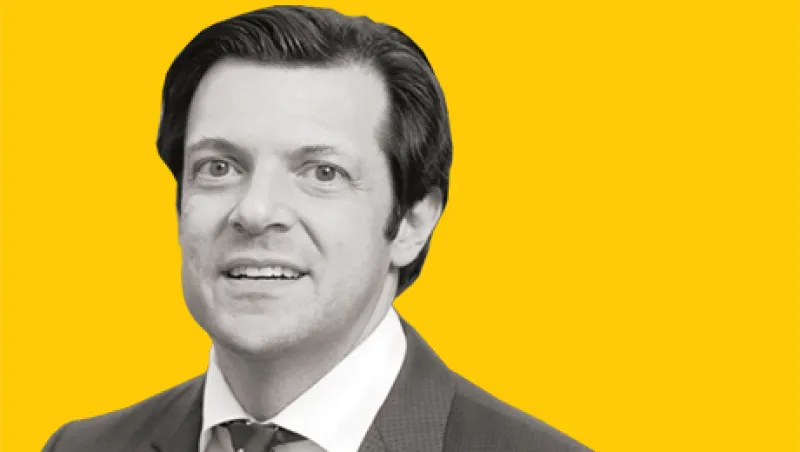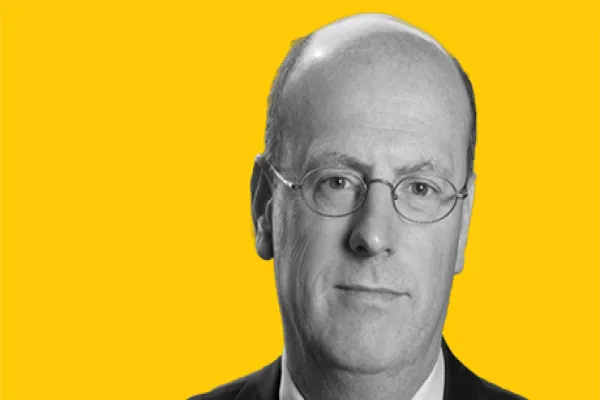What’s a buy-and-hold investor to do when its long-duration corporate bonds mature and new paper offers nothing like the same yields? If you’re Stefan Hentschel of German specialty-chemicals producer Evonik Industries, you try your hand at everything from real estate and private equity to buying chunks of your country’s power grid. “At the end of the day, you can’t replace classical fixed-income stuff,” says Hentschel, 43, who has been running the Essen-based company’s €8.9 billion ($10.1 billion) in retirement assets since 2008.
His challenge is magnified by a complex setup. He manages three funds: €4.5 billion for the legacy pension fund of Degussa, the chemicals company Evonik acquired in 2006 to transition away from coal mining; a €3.1 billion fund for the new Evonik; and the remainder for the group’s U.K. and U.S. employees. The Degussa fund is run on an absolute-return basis, with a target of 4.2 percent, but the return fell to 2.6 percent last year and the fund is likely to lower its target this year. Evonik’s fund, which combines a liability-driven portfolio with risk assets, returned 4.3 percent in 2015 and an average annual 10.3 percent over the past five years.
Hentschel and his team of seven professionals have bulked up on illiquid assets, led by real estate. When its corporate parent unloaded Vivawest, a German outfit that owns 130,000 apartments, the Evonik fund invested €1 billion for a 25 percent stake. The Degussa pension, which prizes liquidity, has a €500 million position in a real estate fund. When utility RWE, a longtime Evonik stakeholder, sold off its electric grid in 2011, Evonik invested €100 million in the consortium that bought it. Hentschel plans to grow infrastructure to more than 10 percent from 7 percent currently. He’s also ramping up private equity, with a target of 8 percent, and putting a toe into private credit via a fund run by a German insurer.
Diversification is a must in today’s low-return world, but it doesn’t come without risk, Hentschel admits: “You never know where the fat tails are out there these days.”
Return to “Europe’s Money Masters of 2016.”
2016 European Money MastersClick below to view profiles.
| Investor Lifetime AchievementRoger GrayUniversities Superannuation SchemeGermanyStefan HentschelEvonik IndustriesU.K. CorporateTony BroccardoBarclays UK Retirement FundCentral and Eastern EuropeKatrin RaheSwedbank Investment Funds |
| Manager Lifetime AchievementPascal BlanquéAmundiNetherlandsMark BurbachBlue Sky GroupSmall CountriesPaul DroopBank of IrelandFranceSalwa Boussoukaya-NasrFonds de Réserve pour les Retraites |
| SwitzerlandAdrian RyserMigros-PensionskasseU.K. PublicMark LyonEast Riding Pension FundScandinaviaHenrik Olejasz LarsenSampension |




